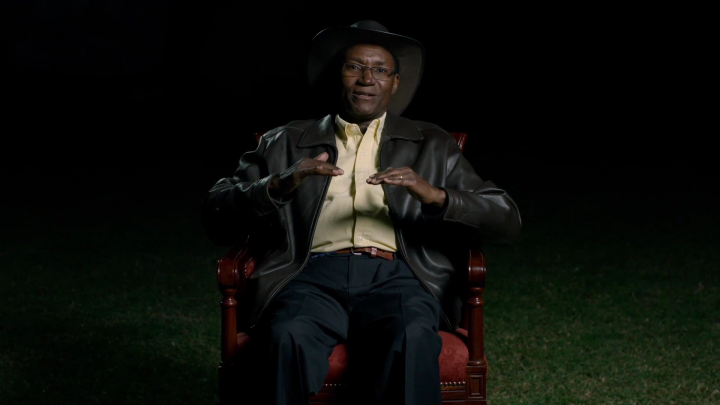It's rare nowadays to hear about good news in Africa. It seems all too easy to only hear the reports of violence and hunger and war. That's why a film like Mully is so powerful. It tells the simple tale of Charles Mully and the Mully Children's Family.
Charles Mully was born in Kenya and on his own since he was six years old. After spending over a decade begging on the streets and working menial jobs, he managed to not only start a business but quickly and successfully build a business empire, from taxis to real estate and everything in between. He married his wife Esther and had eight children and for a while they enjoyed a lavish lifestyle. That is, until Charles felt a call from God that he needed to do more to help the children on the streets. His mind made up; he sold most of his businesses and began taking in children and raising them as his own. As it went with his businesses, this program quickly grew.
There are so many astonishing facets to Mully's story that it can be difficult to believe. In many instances, their only explanation is that it's a miracle. It's a miracle when food is donated right when they start to worry about running out. It's a miracle when water is found during a hard drought in Kenya. God clearly plays an important role in Mully's motivations, but it's refreshing that it isn't shoved in the audience's face. Instead, it's mentioned but left for the audience to interpret and value. No matter your views, you can't ignore the amazing work Mully and his family is doing.
The film is beautifully shot, and its subject is incredibly compelling with a warm, broad smile and a face that looks 40 when he's really over 65. His story is told through re-enactments (many with Mully playing his younger self) and home videos, a compilation that feels natural and easy to watch. This footage is interwoven with voiceovers from interviews with Mully, his wife, and his children "“ both biological and otherwise. All the kids rescued by Mully call him "˜Daddy Mully'.
These interviews are truly the heart of the film, and they don't shy away from telling the whole truth. Clearly, when Mully decided to get rid of his fortune to help others, this was a difficult lifestyle change for his wife and kids. With some hindsight, the kids (now all in their 30s and 40s) discuss how angry and ignored they often felt, especially at the beginning. His wife Esther explains it would have been easy for her to be angry, to even leave him for these decisions. Essentially she had to become the caregiver for all of these kids, constantly cleaning, bathing, reprimanding, and cooking. Still, she says now that the decision was easy because she loved her husband and believed in his dream. They've now been married over 45 years.
Although we don't get to hear too much from any of Mully's rescued kids, we hear enough to immediately see the impact Mully has had on them. As they discuss childhoods full of sexual assault, violence, and substance abuse, they also proudly talk about their current careers as doctors, bankers, and scholars. Meanwhile, his biological children have all taken up high level positions within MCF, from farming to international relations to business operations. A few of his children have even married rescued children. It's clear now that every single Mully child has come to cherish their father's mission.
Mully is inspirational in its namesake's dedication and passion to help others. Haze captures his bright spirit without ever interfering, keeping a light touch on the final edit which allows Mully and the people of Kenya to truly shine. It's a truly human piece definitely worth 81 minutes of your time.

